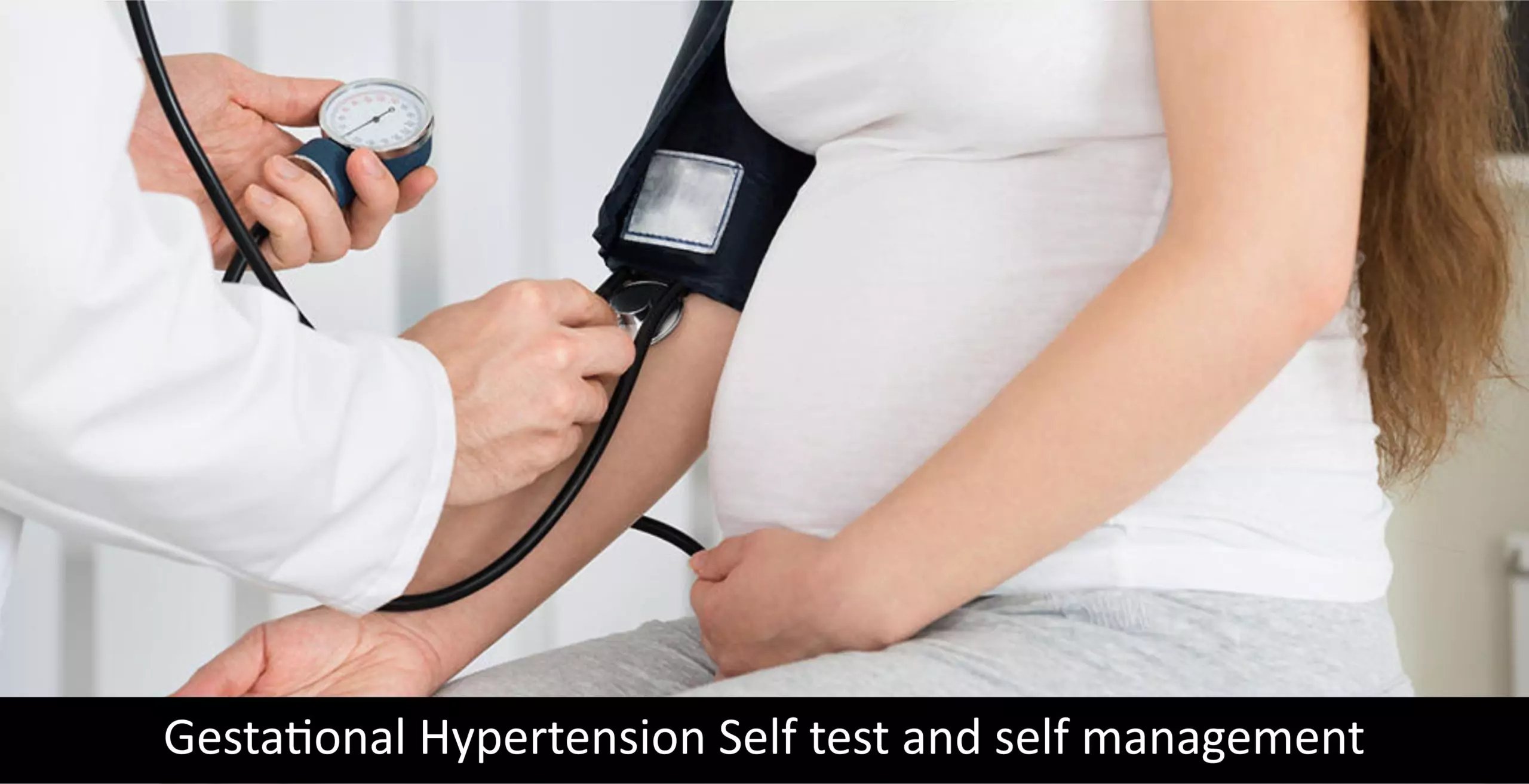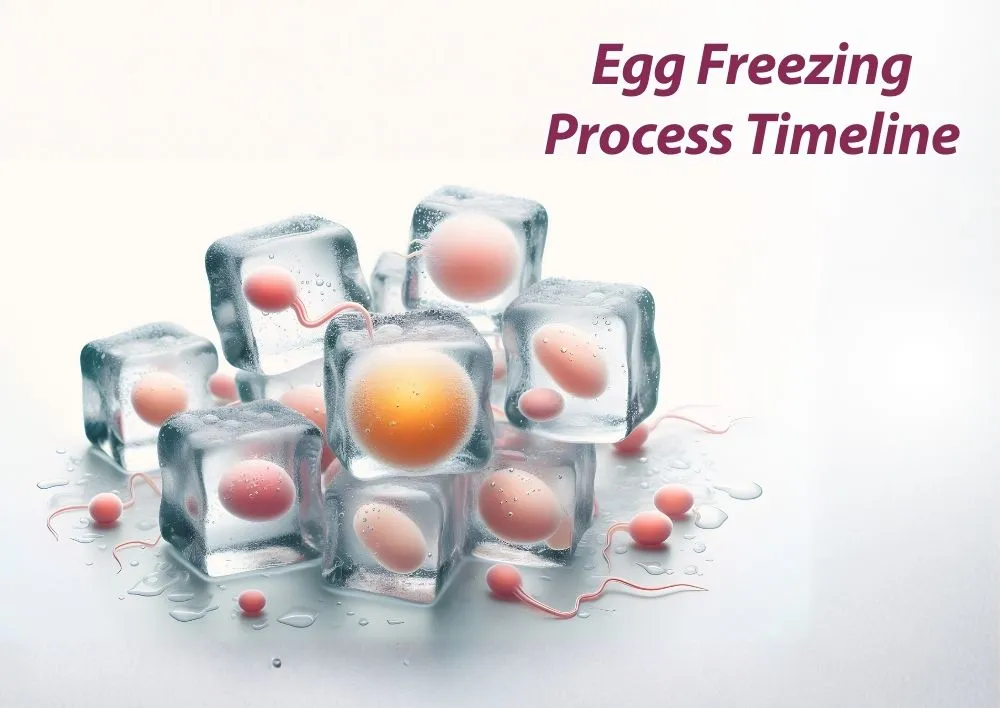Gestational Hypertension: Self-Test and Self-Management
Summary: Gestational hypertension is high blood pressure that develops after the 20th week of pregnancy and requires careful monitoring to prevent complications. Self-testing methods include home blood pressure monitoring, checking for swelling, and observing symptoms like headaches or dizziness. Managing gestational hypertension involves a healthy diet, regular exercise, stress control, and following medical advice. If left untreated, it can lead to preeclampsia, making regular check-ups essential.
Overview
Pregnancy brings many changes to a woman’s body, and one of the concerns that may occur is gestational hypertension, a condition where blood pressure increases after the 20th week of pregnancy. If not monitored, it can lead to serious complications for both the mother and the baby.
Understanding how to detect and manage gestational hypertension is important for a healthy pregnancy. In this blog post, we will explore self-testing methods and effective self-management strategies to keep your blood pressure under control.
What is Gestational Hypertension?
According to one of the best gynaecologists hospital in Gurgaon at Miracles Apollo Cradle, Gestational hypertension refers to high blood pressure (above 140/90 mmHg) that occurs after 20 weeks of pregnancy in women who previously had normal blood pressure. Unlike preeclampsia, it does not involve protein in the urine or organ damage. However, if unmanaged, it can develop into preeclampsia, which is a serious condition.
How to Self-Test for Gestational Hypertension?
1. Monitor Your Blood Pressure at Home
Using a digital blood pressure monitor, you can check your BP at home. Follow these steps:
- Sit relaxed, with your back supported and feet flat on the floor.
- Place the cuff correctly on your upper arm.
- Measure at the same time daily, preferably in the morning.
- Record your readings to track any changes.
2. Check for Swelling
Swelling in the hands, feet, and face can be a sign of high blood pressure. Gently press on your skin and see if it leaves a dent—this could indicate water retention.
3. Observe Your Symptoms
If you experience persistent headaches, dizziness, or vision changes, note the frequency and severity. These symptoms could indicate worsening hypertension.
4. Urine Dipstick Test
Some pharmacies sell urine dipstick tests that check for protein levels. If protein is present, it may indicate preeclampsia, and you should contact your doctor immediately.
Self-Management Tips for Gestational Hypertension
1. Follow a Healthy Diet
-
Reduce salt intake to prevent fluid retention.
-
Include potassium-rich foods like bananas, spinach, and sweet potatoes, and add lean protein sources such as chicken, fish, and legumes to your diet.
-
Stay hydrated by drinking plenty of water.
2. Engage in Gentle Exercise
-
Walking for 20-30 minutes daily can improve circulation.
-
Prenatal yoga can help reduce stress and promote relaxation.
-
Avoid high-intensity workouts that may strain your heart.
3. Manage Stress Levels
-
Practice deep breathing exercises or meditation.
-
Get adequate sleep (at least 7-9 hours per night).
-
Listen to calming music or read a book to relax.
4. Monitor Weight Gain
Excessive weight gain can contribute to high blood pressure. Aim for a healthy weight gain based on your doctor’s recommendations.
5. Avoid Smoking and Alcohol
Both smoking and alcohol can increase blood pressure and lead to complications during pregnancy. It’s best to completely avoid them.
6. Follow Your Doctor’s Advice
If your doctor prescribes medication or suggests regular check-ups, make sure to follow their guidance. Never skip prenatal appointments.
Gestational Hypertension Symptoms
While many women may not experience noticeable symptoms, here are some warning signs to watch for:
-
High blood pressure readings (above 140/90 mmHg)
-
Swelling in hands and feet
-
Severe headaches
-
Blurred vision or sensitivity to light
-
Shortness of breath
-
Nausea or vomiting
-
Decreased urine output
Gestational Hypertension Causes
The exact cause of gestational hypertension is not always clear, but several factors may contribute to its development:
1. First pregnancy: Women experiencing their first pregnancy are at a higher risk due to their body's unfamiliarity with pregnancy-related physiological changes.
2. Multiple pregnancies: Carrying twins or more increases the risk as the body undergoes additional strain to support multiple fetuses.
3. Obesity: Excess body weight can contribute to high blood pressure by increasing the workload on the heart and vascular system.
4. Family history: A history of hypertension or preeclampsia in close relatives, such as a mother or sister, can elevate the risk.
5. Diabetes or kidney disease: Pre-existing conditions can make it harder for the body to regulate blood pressure properly during pregnancy.
6. Maternal age: Being younger than 20 or older than 40 increases risk as the body may respond differently to the hormonal and physiological changes of pregnancy.
7. Lifestyle factors: Unhealthy habits such as high-sodium diets, lack of physical activity, and excessive stress can contribute to high blood pressure.
8. Poor placental development: In some cases, inadequate development of the placenta can lead to high blood pressure due to restricted blood flow.
9. Autoimmune disorders: Conditions such as lupus and rheumatoid arthritis can increase the risk of gestational hypertension.
Gestational Hypertension Treatment
The treatment for gestational hypertension depends on the severity of the condition. The primary goal is to lower blood pressure while ensuring the safety of both the mother and baby.
1. Medications: In certain cases, doctors may recommend antihypertensive medications to manage blood pressure. These medications are carefully selected to be safe during pregnancy.
2. Frequent Monitoring: Regular prenatal check-ups are essential to monitor blood pressure levels and detect any signs of preeclampsia early.
3. Hospitalization (In Severe Cases): If blood pressure becomes dangerously high, hospitalization may be necessary to provide close monitoring and prevent complications.
4. Early Delivery (If Required): If gestational hypertension progresses to preeclampsia, doctors may recommend inducing labor early to protect both mother and baby.
When to Seek Medical Help
If you experience any of the following symptoms, consult your gynecologist immediately:
-
Blood pressure above 160/110 mmHg
-
Severe headaches that don’t go away
-
Blurred vision or flashing lights in your eyes
-
Sudden weight gain of more than 1-2 kg per week
-
Reduced baby movements
Conclusion:
Gestational hypertension can be managed effectively with early detection and lifestyle changes. By monitoring your blood pressure, adopting a healthy lifestyle and staying in touch with a gynaecologist near you, can ensure a safe and healthy pregnancy.
Always listen to your body, and if you notice any concerning symptoms, don’t hesitate to seek medical help. Because your health and your baby’s well-being come first! If you are pregnant and concerned about high blood pressure, schedule a prenatal check-up at Miracles Apollo Cradle today! Our experts provide comprehensive maternal care to ensure a smooth and safe pregnancy.















Was the information useful?
0 0